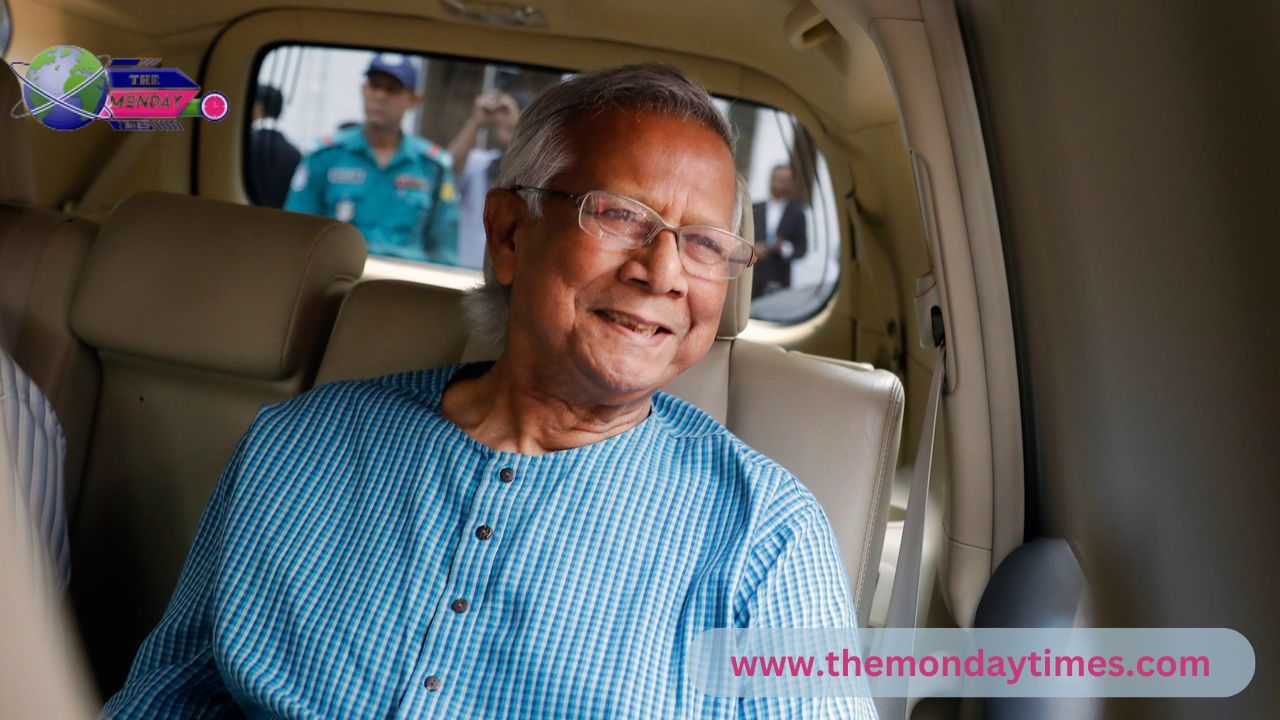MUHAMMAD YUNUS was already Bangladesh’s most famous citizen; this week he assumed its most important political office. On August 6th, the 84-year-old economist and Nobel Peace laureate was appointed to head an army-backed interim government after widespread protests led to the resignation of Prime Minister Sheikh Hasina. Protest leaders, frustrated by Sheikh Hasina’s authoritarian rule, rallied around Mr. Yunus as the ideal leader to guide the nation through this period of turmoil. As one student movement leader remarked, “In Dr. Yunus, we trust.”

Their trust is well-founded. Mr. Yunus has dedicated his life to improving the lives of his fellow Bangladeshis. His involvement began during Bangladesh’s struggle for independence in 1971. At the time, Mr. Yunus was an assistant professor of economics in the United States and played a significant role in the freedom movement by lobbying the White House to recognize Bangladesh, a nation infamously labeled a “basket case” by Henry Kissinger, then President Nixon’s national security adviser. After independence, Mr. Yunus returned to Bangladesh and joined the new government’s planning commission.
However, bureaucracy proved frustrating for Mr. Yunus, as did academia, where he served as head of a local university’s economics department. In 1974, as Bangladesh was ravaged by famine, Mr. Yunus grew disillusioned with teaching “elegant theories of economics” while widespread starvation plagued the nation. He wanted to be “of some use to some people,” a desire that soon found its outlet. In 1976, Mr. Yunus encountered Sufiya Begum, a 21-year-old bamboo furniture maker trapped in a cycle of debt due to predatory lenders. Commercial banks refused her loans because she had no collateral, so Mr. Yunus paid off her debts out of his own pocket.
This experience was a “eureka moment” for Mr. Yunus. It inspired him to launch a financial program that provided small loans to the very poor. This innovative initiative eventually grew into Grameen Bank, which now boasts 23,000 employees and 11 million borrowers across 94% of Bangladeshi villages. Over the years, Grameen Bank has disbursed $39 billion in loans, primarily to poor women. The concept of microfinance also became a global phenomenon, with over 100 developing countries adopting similar microcredit services inspired by Grameen.
Mr. Yunus’s efforts earned him international recognition, culminating in the 2006 Nobel Peace Prize, which he shared with Grameen Bank for their “efforts to create economic and social development from below.” However, Mr. Yunus was never content to be merely the “banker to the poorest of the poor,” as the Nobel committee called him. His entrepreneurial spirit, perhaps nurtured during his youth when he and his father ran a successful packaging company, drove him to expand the Grameen movement into diverse sectors such as agriculture, fisheries, telecommunications, and even software.
Despite his many achievements, Mr. Yunus has faced criticism, most notably from Sheikh Hasina. She once accused him of being a “bloodsucker of the poor,” arguing that the high-interest rates charged by microfinance lenders trapped borrowers in a cycle of debt rather than lifting them out of poverty. Economists have also questioned the efficacy of the microfinance model, with some studies suggesting that microcredit does not significantly reduce poverty, especially among the very poorest.
However, Sheikh Hasina’s criticisms appeared more politically motivated than economically justified. Mr. Yunus drew her ire in 2007 when he contemplated entering politics during a period of military rule. At that time, the military intervened after a corrupt and authoritarian rule by one of Bangladesh’s two major political parties, seeking an alternative and identifying Mr. Yunus as a potential leader.
After Sheikh Hasina became Prime Minister in 2009, she targeted potential political threats, including Mr. Yunus. In 2011, her government forced him off Grameen’s board. The attacks extended beyond his work with Grameen, with accusations that he promoted homosexuality and lobbied the United States to persuade the World Bank to abandon a critical infrastructure project. Earlier this year, he was sentenced to six months in jail for violating labor laws. Mr. Yunus has consistently denied any wrongdoing, claiming that the 190 court cases against him are politically motivated.
Microcredit Pioneer Muhammad Yunus Appointed as Bangladesh’s Interim Leader
Despite his earlier flirtation with politics, Mr. Yunus has maintained that it is not his “cup of tea.” His recent focus has been on creating a world with “three zeroes”: zero net carbon emissions, zero poverty, and zero unemployment. However, as Bangladesh’s interim leader, he now finds himself in the political arena, tasked with restoring order and ensuring free and fair elections. Writing in *The Economist* shortly before assuming his new role, Mr. Yunus referred to 1971, celebrating Bangladesh’s “second liberation.” He urged the nation to move beyond its “backward-looking” politics, helping Bangladeshis look to the future with renewed hope.